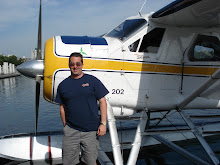

Alan David Dick was born on
January 7 1924 at
Lahore, where his father, Brigadier Alan McDonald Dick, was a member of the Indian Medical Service. Young David was educated at Fettes and then locally at
Aitchison College,
Lahore, from where he enlisted in 1942.
Commissioned as a pilot officer after training in India, Dick joined No 684, a de Havilland Mosquito long-range photographic-reconnaissance squadron covering Burma, Siam and Malaya. Moving in July 1944 to No 30 Squadron, equipped with Republic Thunderbolts, he flew intensively in close support of the 14th Army as "Uncle Bill" Slim defeated the Japanese in Burma.
Dick was released in 1946, having served briefly with No 595, a Spitfire squadron. He went up to King's College, Cambridge, to read Mechanical Sciences, after which he took a permanent RAF commission in 1950. After instructing on Gloster Meteor jets at the Central Flying School, Dick was selected for the Empire test pilots school, earning the coveted "tp" after his name.
Following spells on "Bloodhound" surface-to-air trials at North Coates and the RAF Staff College, Andover, Dick received command at Marham of No 207, a Valiant nuclear deterrent squadron. The squadron was assigned to Supreme Allied Command Europe on Quick Reaction Alert duties, entailing readiness for immediate dispatch to Cold War targets.
Dick returned to Boscombe Down as Superintendent of Flying in 1964, moving on to HQ Strike Command in 1968. He became Deputy Director Air Plans at the MoD in 1971, and then Director Operational Requirements. In 1974, Dick returned to Boscombe Down as Commandant. His last appointment was again in Whitehall, as Deputy Controller Aircraft. He retired in 1979.
Dick was awarded an AFC in 1957. He was appointed CBE in 1968 and CB in 1978. He was elected a Fellow of the Royal Aeronautical Society in 1975.

 Alan David Dick was born on
Alan David Dick was born on 

<< Home